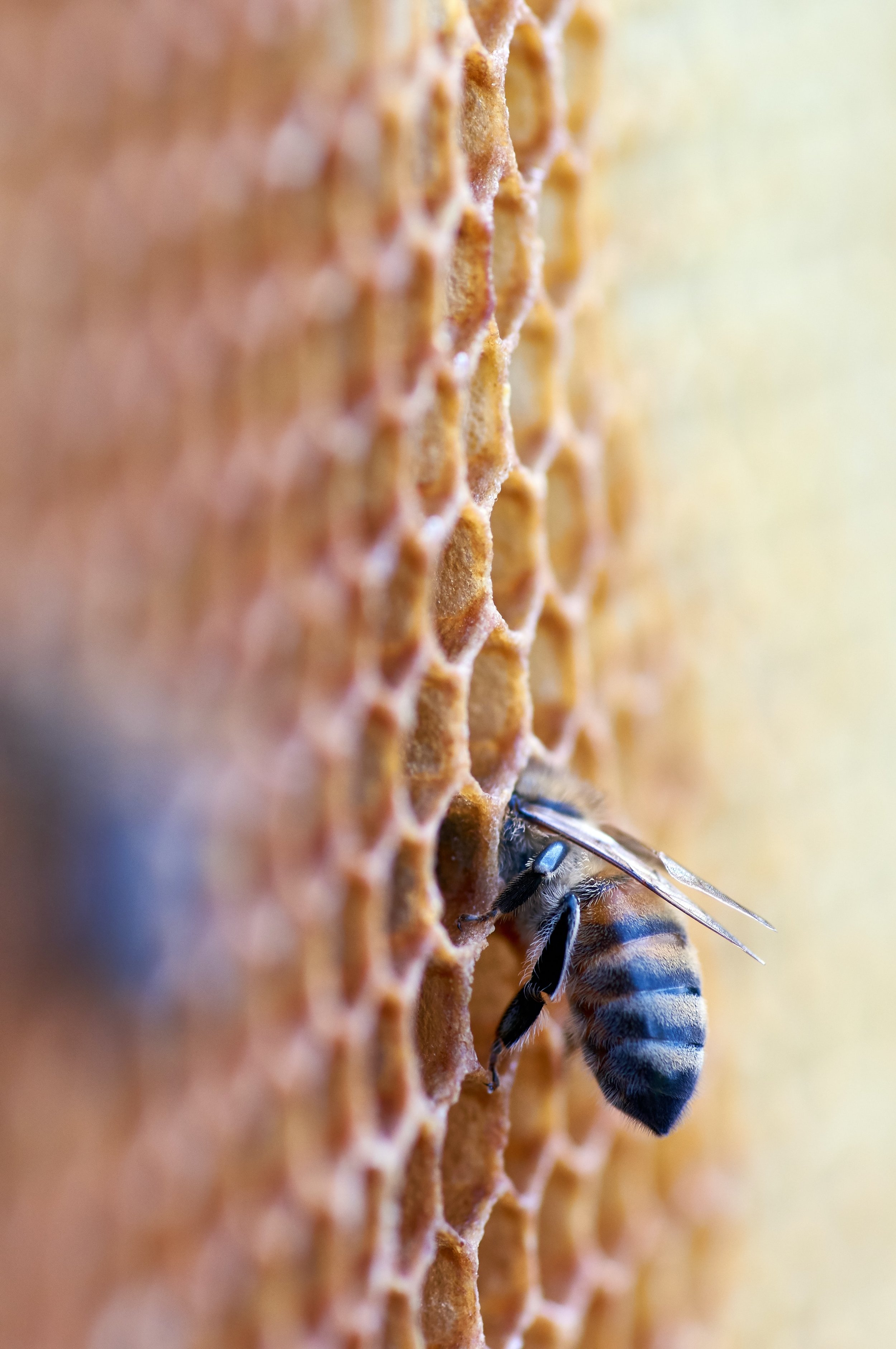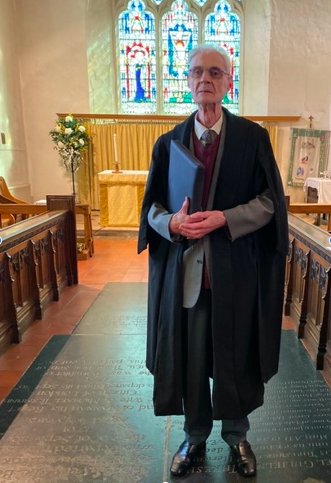Bees, honey and harmony by Peter Knatt
/Insights into honey-making and harmony in the beehive by Peter Knatt
Reminiscing with the grandchildren the other day, I recalled that Uncle Fred kept bees on the smallholding where he and Aunt Tilly had built their home. It was a neat and tidy little cottage on a large plot of land deep in the country, surrounded by fields as far as the eye could see. Whilst it had no mains drainage, gas or electricity supply and the water came from a well in the yard it was a warm, welcoming, loving home for all that. Aunt Tilly, a large jolly lady who was one of my grandmother’s sisters, loved cooking so that there was always something on the stove in the kitchen. Fred and Tilly had first met as children at the village school. Eventually they got married and brought up their family in this cottage where they had spent the whole of their life together.
Uncle Fred had always kept bees so that what he did not know about them was not worth knowing. I remember him telling me that one of his hives might contain around 35,000 bees in high summer, dropping to 5,000 in winter. Each bee had his or her own particular task depending on its age, he said. A worker bee (female, of course), would spend the first half of her life in the hive before flying out to pollinate plants, collect pollen, nectar and water; then she will only live for another 20 days. There was always a good supply of honey in the house; Uncle Fred reckoned he got 40-60lb a year on average, so that their neighbours, friends and family were well supplied and there was always plenty for their local church summer fete. Aunt Tilly attended the village church regularly each Sunday but could never persuade Uncle Fred to go; except for his wedding and that one last time when he had no option!
The old cottage was pulled down years ago to make way for an estate of expensive new modern houses. The bees, too, are long gone, yet looking back, I find it quite remarkable that 35,000 tiny creatures can live and work harmoniously together for the common good, each performing their allotted task, when we humans cannot. Why is that?
Peter Knatt
Peter is an Authorised Local Preacher in an Anglo Catholic parish church in Essex. He is authorised by the Area Bishop to preach, provided a Minister is present, but is not allowed to lead a service. He finds that strange since the words of the Liturgy are printed but the sermon, which is not, is the dangerous bit! Find further reflections here www.reflectionsinthewater.weebly.com
Bee photo by Wolfgang Hasselmann on Unsplash



